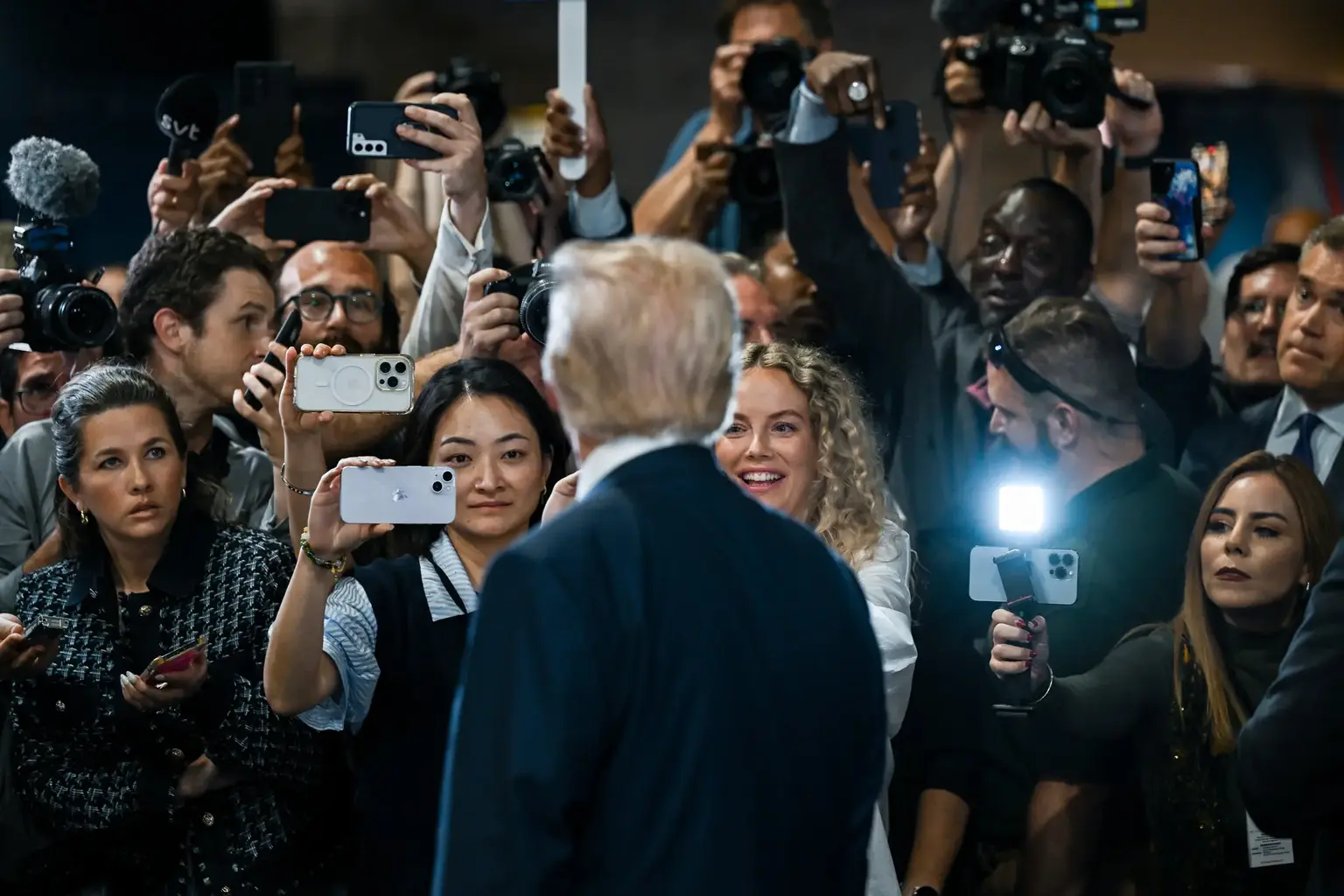Former President Donald Trump has always been known for his self-confidence, particularly when it comes to public appearances and debates. Even when the general consensus is less favorable, Trump often asserts that he performed exceptionally well. A similar scenario unfolded following a recent debate, where Trump declared that he had delivered an excellent performance. However, behind the scenes, many of his political allies and advisors seem to feel differently, raising questions about the potential rift between Trump’s public statements and the private assessments within his camp.
This article delves into the details of Trump’s post-debate remarks, the reactions of his allies, and the broader implications of such discrepancies for his political strategy and future prospects.
Trump’s Public Declaration of Success
Donald Trump has consistently portrayed himself as a master debater, claiming success even when the reviews have been mixed or negative. After the recent debate, Trump remained true to form. He told supporters and the media that he was pleased with his performance, confidently asserting that he had outshone his competitors.
Publicly, Trump emphasized his key talking points, asserting that he had stayed on message, attacked his political rivals effectively, and presented his vision for the country in a way that resonated with voters. He framed the debate as another victory in his long political career, casting himself as the leader most capable of winning back the White House.
From a public relations standpoint, Trump’s comments were predictable. By asserting a strong performance, Trump aimed to project an aura of invincibility. His brand relies heavily on confidence and the perception that he is always in control, regardless of how events actually unfold.
Allies Express Concerns in Private
While Trump was busy declaring victory, many of his closest allies and advisors reportedly took a different view behind closed doors. According to sources close to Trump, some of his inner circle were less than enthusiastic about his debate performance, privately expressing concerns about his ability to connect with voters and stay on message.
These concerns reportedly revolved around several key points:
- Missed Opportunities: Some allies felt that Trump missed crucial opportunities to appeal to undecided voters or to offer substantive policy positions. Instead of focusing on new proposals, Trump often reverted to familiar talking points, which may not have resonated with the broader audience.
- Defensive Tone: Critics within Trump’s camp suggested that his tone at times came across as too defensive. Rather than taking a proactive stance, Trump often found himself in reactive mode, responding to attacks or questions in ways that some felt were not strategic.
- Lack of Focus: Some advisors pointed out that Trump’s performance lacked the kind of disciplined messaging that might win over swing voters. While his core base remains loyal, there are concerns that his debate approach may not have done enough to expand his appeal beyond his established support.
These internal discussions raise important questions about the state of Trump’s campaign and his ability to navigate the unique challenges of the 2024 election cycle. Although Trump is still a dominant figure in the Republican Party, he faces increasing scrutiny over whether he can adapt to the evolving political landscape.
The Challenges Facing Trump’s Campaign
Trump’s post-debate reaction and the contrasting views of his allies highlight broader issues within his campaign. His performance, combined with his ongoing legal troubles and the potential for growing competition within the Republican Party, underscores the precarious position he finds himself in as he attempts to reclaim the presidency.
1. Stagnation in Messaging
One of the most significant concerns raised by Trump’s allies is that his messaging may have stagnated. Over the years, Trump has relied heavily on a consistent set of themes: opposition to immigration, deregulation, trade protectionism, and attacking the media. While these points resonate with his core supporters, there is increasing worry that these talking points are no longer enough to mobilize a broader coalition of voters.
As the political landscape shifts and voters become more concerned with issues like climate change, health care, and economic inequality, Trump’s failure to offer fresh ideas could weaken his appeal. The debate provided a platform for him to address some of these concerns, but his performance left many wondering whether he could effectively pivot to address the changing needs of the electorate.
2. Legal Troubles Loom Large
Trump’s debate performance also played out against the backdrop of his numerous legal challenges. As the 2024 election approaches, Trump faces investigations and court cases that threaten to complicate his campaign. His legal troubles, ranging from investigations into his business dealings to potential charges related to the January 6th Capitol riot, create a complex and risky environment for his presidential aspirations.
Some of Trump’s advisors reportedly worry that his legal issues are beginning to overshadow his political message. In private, these advisors have expressed concern that Trump’s focus on defending himself from legal challenges could detract from his ability to mount an effective campaign. These distractions were evident during the debate, where Trump occasionally veered off-topic or became defensive when confronted with tough questions about his past actions.
3. Rising Republican Competition
Another significant issue facing Trump’s campaign is the rising competition from within the Republican Party. While Trump remains the frontrunner in many polls, several prominent Republican figures are positioning themselves as viable alternatives. Candidates like Florida Governor Ron DeSantis, former Vice President Mike Pence, and others are seeking to challenge Trump’s dominance.
Some of Trump’s allies worry that his debate performance did not do enough to solidify his position as the uncontested leader of the party. Although he remains popular among the base, his inability to clearly differentiate himself from his competitors in the debate may embolden other candidates to step up their campaigns. This could lead to a more contentious primary battle, potentially weakening Trump’s chances in the general election.
The Public vs. Private Narrative: A Recurring Theme in Trump’s Political Career
The discrepancy between Trump’s public declarations of success and the private concerns of his allies is not a new phenomenon. Throughout his political career, Trump has consistently projected confidence, even in the face of significant challenges. This approach has been a key part of his brand, helping him maintain support among his base.
However, this recurring theme also raises questions about the long-term effectiveness of Trump’s strategy. While projecting confidence can be a powerful tool in politics, it may not always align with the realities of the campaign. By dismissing legitimate concerns from his advisors, Trump risks becoming increasingly isolated and out of touch with the political realities on the ground.
In the context of the recent debate, Trump’s insistence on framing his performance as a success, despite internal criticisms, reflects this broader tension between public perception and behind-the-scenes realities. It remains to be seen whether Trump will adjust his approach based on the feedback from his allies or continue with his tried-and-true strategy of doubling down on his public persona.
Conclusion: A Defining Moment for Trump’s 2024 Campaign?
The recent debate and the contrasting reactions from Trump and his allies mark a potentially defining moment for his 2024 campaign. As Trump moves forward, he faces critical decisions about how to adapt his messaging, navigate his legal troubles, and respond to the rising competition within the Republican Party.
While Trump continues to project confidence, the private concerns of his allies suggest that his campaign may need to make adjustments if he is to succeed in his bid for a second term. Whether Trump chooses to listen to these concerns or forge ahead with his existing strategy will likely shape the trajectory of his campaign in the months to come.
Ultimately, the gap between Trump’s public declarations and the private worries of his allies highlights the complexities of his political strategy. For now, Trump remains a dominant force in American politics, but as the 2024 election draws nearer, the pressure to evolve and adapt will only increase.





